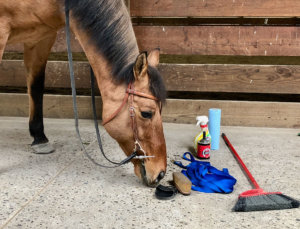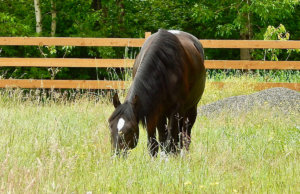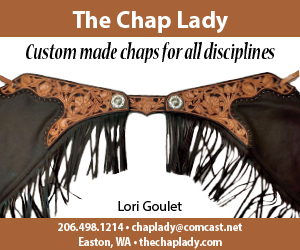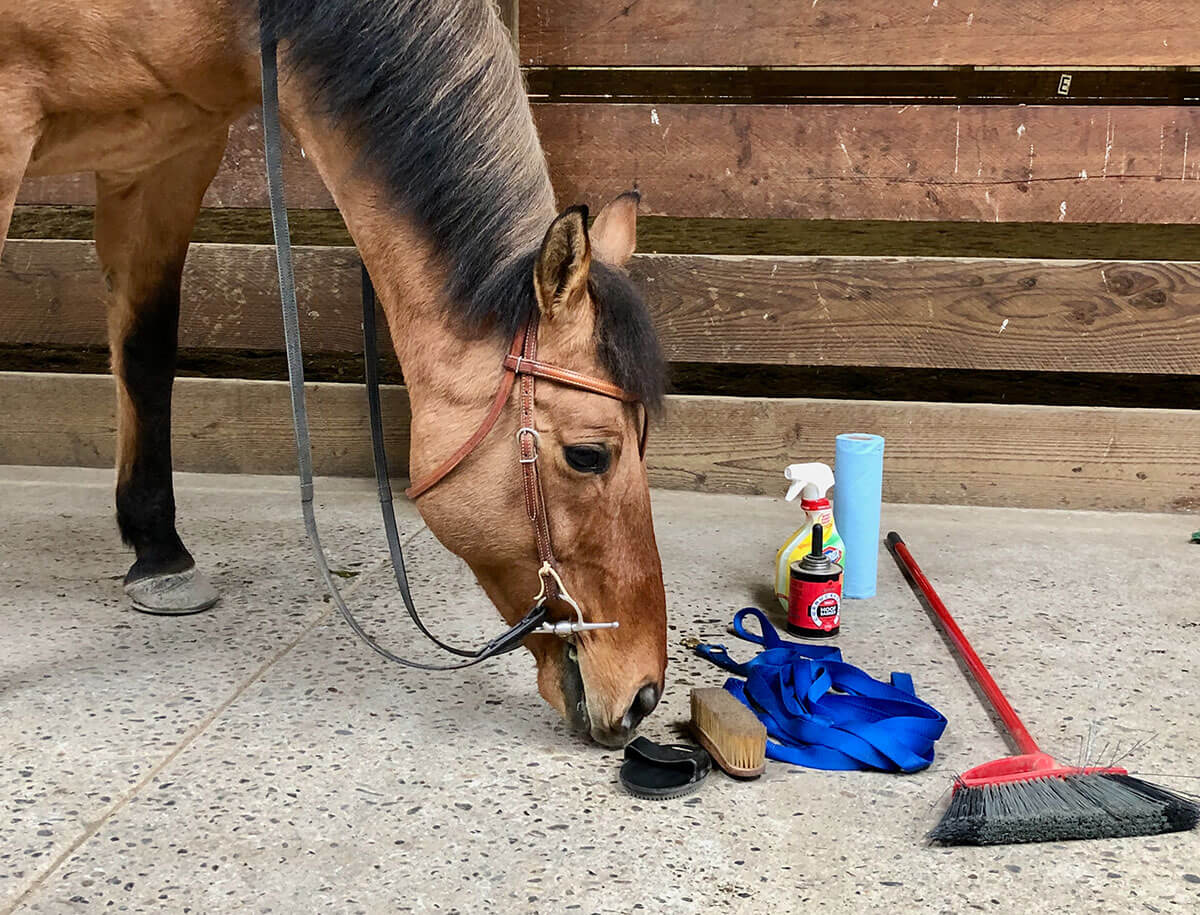Information from a Veterinarian for Horse and Pet Owners
COVID-19 is a term that has rapidly acquired worldwide recognition. The seriousness of this highly contagious disease is inescapable. The situation and information regarding COVID-19 is fast changing. Below is recently collated information from three veterinary sources: the American Association of Equine Practitioners (AAEP), the American Association of Veterinary Medicine (AVMA) and the Equine Disease Communication Center (EDCC). It is meant to be informative, useful and practical information for the horse owner.
Coronaviruses are a large family of viruses that cause disease in animals and humans. Examples of coronaviruses that affect animals and not people include:
- Equine corona virus (ECoV) is a contagious disease that causes gastrointestinal disease in horses. Symptoms include fever up to 105°F, loss of appetite, depression, colic, diarrhea, low blood protein levels, dehydration, and, in some cases, neurological signs. It is more common in the winter months. There is no evidence of transmission of this virus to other animals or to humans. There is no vaccine.
- Winter dysentery is a disease of cattle. Like with ECoV, this is a gastrointestinal disease affecting only cattle.
- Transmissible gastroenteritis is a disease of pigs.
- Feline infectious peritonitis is a disease of cats. This is an autoimmune disease.
- Infectious bronchitis is a respiratory disease of chickens.
COVID-19 is a new coronavirus that infects people. Thousands of dogs and cats have been tested for COVID-19 and have been negative. The AVMA stated recently on their website, “Infectious disease experts and multiple international and domestic human and animal health organizations agree there is no evidence at this point to indicate that pets become ill with COVID-19 or that they can spread COVID-19 to other animals, including people.” This applies to horses as well. Having said this, COVID-19 is a new virus and it is changing. Taking precautions when handling your horse or pets is prudent. For example, wash your hands before and after handling your animals. Wear riding gloves when bridling and do not touch your face with your gloves. Hugs and kisses with your animals are on hold for now too.
Although COVID-19 is a respiratory virus of people, it’s an example of a coronavirus that did originate from an animal and managed to “jump species” to infect humans. There have been two others. SARS-CoV (Severe Acute Respiratory Syndrome) is a coronavirus that caused an epidemic in 2002-2003. This virus originated in bats and jumped to an intermediate host, a civet, which is a Southeast Asia animal related to mongooses and weasels, before it jumped to humans. The second one was MERS-CoV (Middle East Respiratory Syndrome) that struck Saudi Arabia in 2012. It also originated in bats and jumped to an intermediate host, in this case a type of camel, before it jumped to humans. The intermediate host for COVID-19 has not yet been determined. Note: COVID-19 has been hugely more severe, contagious and devastating than either SARS or MERS.

Horse owners, like everyone else throughout the country, are taking measures to protect themselves, their farms, and the public. At the risk of sounding redundant, here are a few ideas and suggestions for equestrian facilities:
- Follow CDC recommendations regarding social distancing, handwashing, etc.
- Restrict access to the facility to essential personnel, not unlike the steps taken during the EHV-1 outbreak of 2012.
- Have an online sign-up list to limit access to the facility and arena use
- Set-up handwashing stations and/or have hand sanitizer available at multiple locations
- Porous surfaces tend to absorb and trap the virus. Although porous surfaces can transmit the virus, non-porous surfaces are worse.
- Examples of non-porous surfaces include leather bridles, saddles, leather halters, nylon halters, nylon lead ropes, gate & stall door latches, door handles, spray nozzles, metal clips, plastic buckets and feed tubs
- Non-porous surfaces include cotton lead ropes, saddle pads, rags, horse blankets
- Regularly clean and disinfect frequently used surfaces. Consider having a schedule and checklist
- Do not share supplies and equipment
- If having symptoms of respiratory or gastrointestinal disease, avoid contact with horses and pets…and other humans. In other words, self-quarantine.
During the Washington State COVID-19 shut down, veterinary clinics are considered an essential service. Thankfully, attending to our companion animal’s health and welfare is deemed necessary, not to mention the importance of our societies agriculture, food supply and public health concerns. Although some clinics have shut down, many are still open but are limited to “essential” concerns. Routine exams and procedures have been postponed. Precautions are being taken to protect our doctors and staff, so that we can keep our doors open and avoid further spread of the disease. COVID-19 has been and will continue to be painful, causing a lot of suffering and loss. Our world will get through this.


Dave Sauter is a Minnesota native and graduated from the University of Minnesota in 1987. Following graduation he interned at Rood and Riddle Equine Hospital in Lexington, Kentucky. After this internship, he continued to work exclusively with horses for another five years in Kentucky before moving out West and joining Kulshan Veterinary Hospital in Lynden, WA. He is a member of the AAEP, AVMA and the WSVMA. For more information about Kulshan Veterinary Hospital call 360-354-5095 or email [email protected]. www.KulshanVet.com






